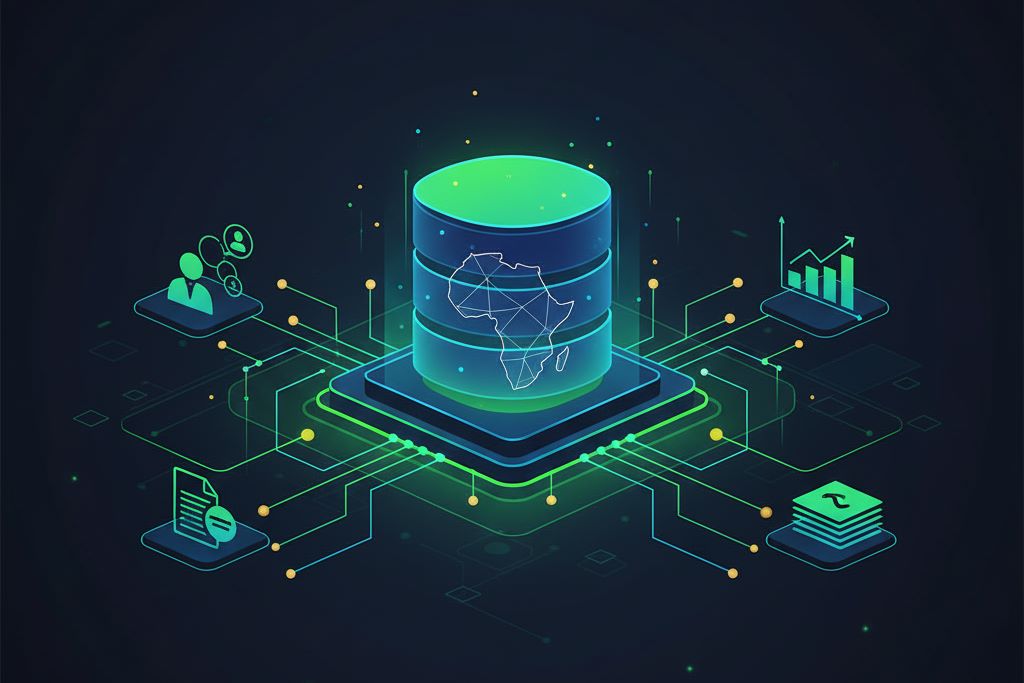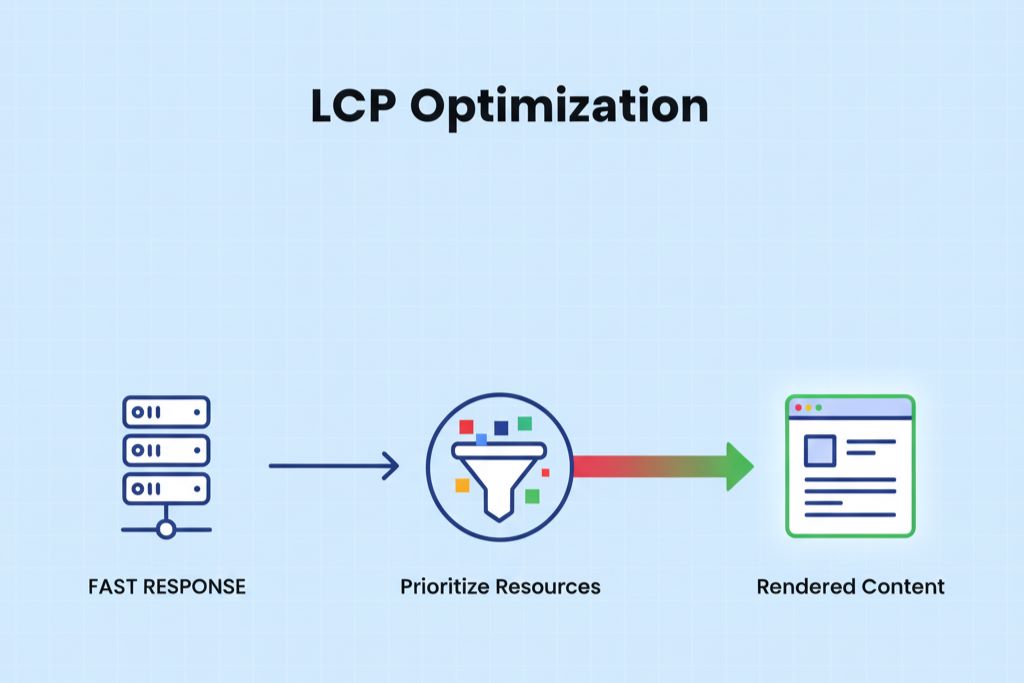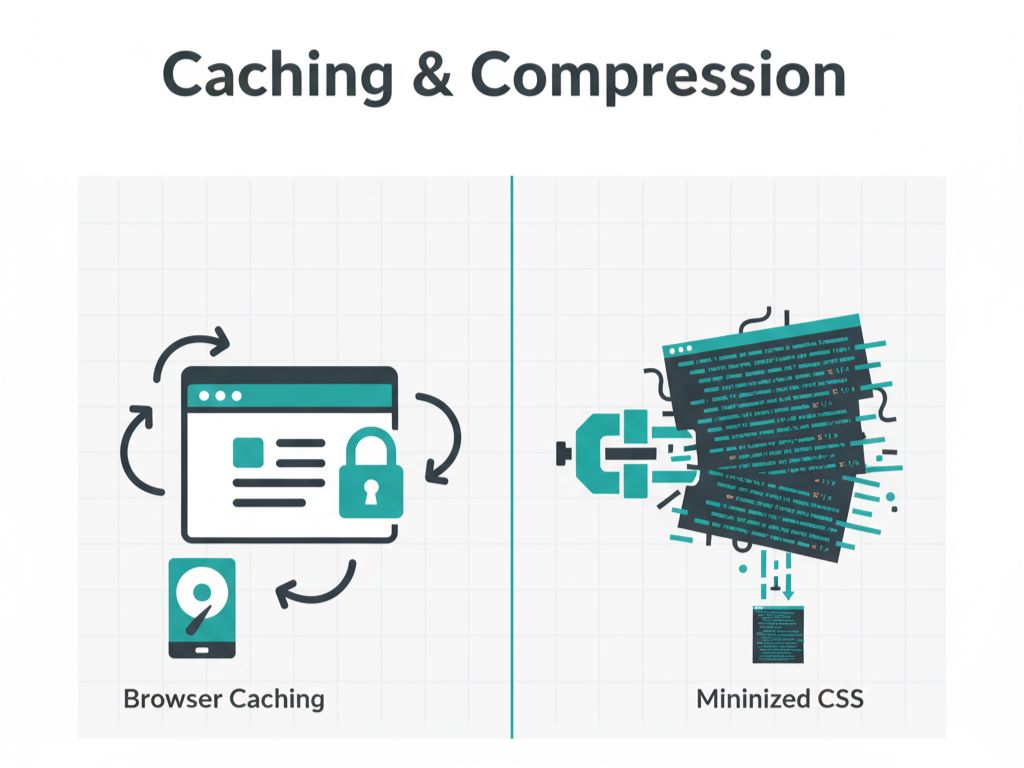Go Beyond Local: Establishing Operational Function and Digital Reach

Your Partner for Integrated Digital, Data, and Publishing Solutions.
This domain GoBeyondLocal.com is arranged to present the operational function required for a business. Your presence here indicates a specific need for functional systems and formal documentation. This resource will function as the central point for defining your next steps in digital development and business documentation.


For any individual, business, or organization, the true challenge lies in moving concept into a consistent, active one that functions and stays active over time.
You recognize the opportunities presented by the digital economy. However, turning a business plan into a reliable website, a secure e-commerce platform, or a published, distributed book requires more than just an idea: it requires a coordinated arrangement. Go Beyond Local can make that arrangement work.
We focus our operations on providing you with three critical resources that enable smooth, long-term operation:
Functional Tools: Essential digital assets that enable smooth operations.
Verified Information: Professional content that drives informed decisions.
Operational Solutions: Support systems that keep your projects running efficiently.
We skillfully arrange and deliver the digital assets and professional content that ensure your project has both a foundation and a path forward.
Digital Platform and Commercial Solutions: Building Your Online Base
Your digital presence is your foundational asset. We begin by establishing and improving this presence, helping your projects move efficiently from planning to active operation. You discover that a robust digital base is not a luxury: it is an operational requirement.
Website Design & Deployment


When you launch your online base, you gain a functional online presence that performs well across all devices. Go Beyond Local can arrange the complete solution: layout planning, content integration, backend systems, and web hosting setup. Your business establishes its digital voice and communication features from day one.
E-Commerce Platform Solutions


Configure online store systems where your products can be displayed, managed, and sold securely. This includes setting up product catalogs and integrating secure payment gateways.
Custom Web Application Solutions


Arrange web-based applications that perform defined functions. These assets can include secure user portals and management dashboards that centralize data access and allow automation of repetitive tasks.
Business Software Tools Solutions


Configure systems like Customer Relationship Management (CRM) tools for managing client data and project tracking tools to monitor progress.
As Bill Gates once noted: “The first rule of any technology used in a business is that automation applied to an efficient operation increases efficiency.” We focus on implementing effective, arranged systems.
Mobile Application Solutions


Prepare and deploy applications for both Android and iOS platforms, ensuring your system is ready for release through official app stores.
Website Maintenance and Support


Provides ongoing technical support and regular updates for active websites.
Information, Data, and Content Solutions: Driving Decisions
Your project’s success relies on verified facts and the professional management of information. This is where Go Beyond Local connects directly to its function of providing Information Service Activities.
Book Publishing & Production Solutions


Handle the full process of preparing manuscripts: professional editing, formatting, and design for various book types.
Children’s Book Publishing Solution


Handles the full production process for children’s books, from illustration coordination to print readiness.
Corporate Documents & Investor Proposals


Prepare formal documents such as feasibility studies, business plans, and investor profiles. These crucial documents organize your strategic plans for funding, planning, or organizational review.
Market Research & Business Intelligence Solutions


Collect and process data about market trends and consumer behavior, providing insights that help you make informed decisions.
Data Collection & Analytics Solutions


Conduct structured data gathering and processing. The resulting reports present data in an understandable form, helping you convert raw information into useful knowledge.
Brand Identity & Messaging Solutions


Develop the visual elements and communication tone for an organization, ensuring consistency and recognition.
Our Operational Principles: Practicality and Dependability
The digital economy in Nigeria is growing. Industry analysis shows the e-commerce sector alone is projected to reach $7.04 billion in revenue by 2025, highlighting the importance of dependable platform solutions. Go Beyond Local envisages a digital economy where every business, regardless of size, can operate effectively.
Practicality: Solutions that fit daily business operations and deliver measurable results.
Plain Communication: Processes are explained clearly so you stay informed at every stage.
Dependability: Commitments and timelines are handled responsibly, showing we value reliable outcomes.
Affordability: Solution packages suit different budgets while keeping consistent quality.
Go Beyond Local is committed to offering functional solutions that enhance your digital, data, and publishing requirements.
Contact Us for All Services
Explore what is possible for your business. Go Beyond Local assists with websites, online stores, book publishing, data, content, and market research. Our service is available to support your business.
📞 Call / WhatsApp: +234-9127-7168-42
✉️ Email: [email protected]
Contact Go Beyond Local to begin your project.
Your Partner for Digital, Creative & Publishing Solutions.


Technology
The Smallest Change That Will Affect All Digital Operations


The Smallest Change That Will Affect All Digital Operations
This content will focus on the critical role of precise and tested digital infrastructure, where a small error can lead to wide-reaching outages. Your organization will gain understanding about the importance of rigorous technical assurance.
Understanding Critical Code Interdependency
The functioning of the global internet platform relies on many small, connected parts. These parts are often small pieces of open-source code that many large systems use. You may think of this structure as a massive, complex building where one simple block can support a heavy load across multiple floors.
In one verifiable instance, the deletion of an 11-line code package from a common JavaScript registry, npm, affected thousands of software projects globally (Source: Quartz, March 2016). That package, called left-pad, was a basic function used by other, much larger software components. Without this simple function, major websites and applications could not properly update or function for a time. Your business will be protected from reliance on such unknown, single-point failures when projects are developed with rigorous dependency review.
Preventing Widespread Digital Service Disruption
Recent history shows that minor configuration changes or small coding issues can stop key internet services. In October 2025, for example, an automated DNS configuration error within one major cloud provider’s database service led to widespread service failures that affected many well-known websites and applications (Source: AWS, October 2025). The root cause was not a complex attack, but an error in system operation.
These incidents confirm that every line of code and every configuration rule will carry a system-wide effect. Your service delivery will include a focus on reducing these points of failure. Your customers will experience more reliable access when the underlying digital arrangement is clear and redundant. Go Beyond Local will apply this necessary focus to the arrangement of your digital assets.
The Economic Effect of Digital Downtime
When critical services stop, the economic effect is immediate and large. Downtime is not only a technical difficulty; it will mean a stop to commerce and communication.
- A majority of enterprise-level IT leaders have reported that 94% of enterprises experienced an IT outage over a three-year period (Source: LogicMonitor, 2023).
- For many enterprises, the hourly cost of downtime will exceed $1 million (Source: Queue-it, 2023).
The cost does not only come from lost revenue. It will also include lost productivity, the cost of regulatory fines, and expenses for system recovery. In 2023, independent data showed that internet outages and degradations caused monthly losses of over $1 million for 51% of reporting companies (Source: Help Net Security, July 2025). Your business will avoid this exposure by establishing highly resilient systems from the start.
Building Digital Projects That Will Stay Functional
Go Beyond Local will assist with digital infrastructure projects to help your operations stay online. This approach will involve the following functional features:
- Review of Dependencies: Go Beyond Local will conduct an expert review of every external code package used in your project to identify and reduce any hidden, single-point dependencies.
- Redundant System Arrangement: The design will include multiple paths and fallbacks so that if one component fails, the overall service will continue to operate.
- Clear Configuration Protocols: The implementation will use only the necessary and fully tested configuration settings to prevent inadvertent activation of error conditions.
- Capacity for Immediate Recovery: The digital architecture will provide the ability to restore service quickly and directly following any unexpected interruption.
This methodical work will establish a platform for your operations that is built on stable, literal code and clear operational requirements.
Your Assurance Through Literal Technical Standards
A professional approach to digital development will remove unverified components and complicated systems that increase risk. Go Beyond Local can provide systems that function predictably.
You will gain access to technical standards that promote longevity and stability. This dedication to exact, literal technical work will ensure that your future platform is not dependent on a few lines of code from an unverified source. The objective is continuous operation without unexpected service breaks.
Contact Go Beyond Local today to discuss your project requirements.
Your Partner for Smart Digital, Creative & Publishing Solutions.
E-Commerce
Do Not Allow Your Digital Store to Shut Down:


Do Not Allow Your Digital Store to Shut Down: The Essential Monthly Website Maintenance Checklist
Good day.
It is pertinent to inquire: Do you treat your business website as a crucial, functioning asset, or as a forgotten billboard? This distinction, ab initio, determines whether your digital presence becomes a revenue engine or a significant liability. Many organizations, after investing substantially in initial web design, often overlook the consistent, quiet work that ensures the platform remains active, secure, and profitable over time.
You must understand that a website is a living, complex system. Without routine and dedicated care, the underlying software inevitably decays, leading to critical security risks, slow performance, and a resultant loss of customer confidence. It is thus compulsory to implement a consistent monthly website maintenance checklist to protect your investment and maintain your core operational focus. When this service is dutifully performed, you invariably secure your reputation, enhance user experience, and sustain your search engine visibility.
1. Discover the True Cost of Neglecting Maintenance
It is often easier for one to perceive maintenance as an extra cost rather than a core protective function. This perspective, however, must change when one reviews the staggering cost of downtime. For high-volume businesses globally, the financial impact is startling and often catastrophic. Research by ITIC indicates that for 90% of mid-sized and large firms, the hourly cost of downtime exceeds $\$300,000$. Whilst your company’s hourly figure may differ, this data unequivocally shows that the risk is real.
When your website fails, you stand to lose more than just immediate sales. You also suffer:
- Lost Productivity: Your valued team redirects their time from core business objectives to technical ‘firefighting’.
- Reputation Damage: Visitors who encounter a broken or slow site often will not return, thereby eroding trust and brand credibility.
- SEO Hit: Search engines temporarily and severely downgrade unstable sites, significantly impacting your organic traffic and long-term visibility.
A proactive approach, defined by a clear monthly website maintenance checklist, enables you to avoid these major disruptions, which are always far more expensive than prevention. Be rest assured that prevention is always the better route.
2. The Five Critical Pillars of Monthly Maintenance
To maintain a stable, fast, and secure platform, you must diligently focus on these five areas every month:
2.1. Implement Critical Security and System Updates
The number one priority on your monthly website maintenance checklist must be security. Cyber threats evolve constantly, and outdated software creates clear, exploitable vulnerabilities.
- Update Core CMS Files: You must update the core files of your Content Management System (CMS) immediately after new releases are announced.
- Review and Update Plugins/Themes: Always update third-party components. Failure to update even one plugin can compromise your entire system.
- Run Security Scans: Implement a monthly scan for malware and unauthorised file changes.
Go Beyond Local appreciates that continuous security is paramount. Our team is readily available to arrange robust security monitoring and update protocols, ensuring your system remains shielded against emerging threats.
2.2. Maintain High Performance and Site Speed
A slow website drives users away and signals poor quality to search engines. Your monthly effort should therefore focus on keeping load times minimal.
- Clear Caching: Regularly clear your website’s cache and server cache.
- Optimise Database: Run a monthly optimisation to clear out spam comments, old revisions, and transient files.
- Check Page Loading Speed: Kindly use a reliable tool to measure your site’s speed. You must aim for fast load times.
2.3. Verify Functionality: The User Experience Audit
Functionality verification necessitates that you step into your customer’s shoes. A functional fault immediately frustrates a user and halts a potential conversion.
- Test All Forms and Checkout: You must confirm that every contact form, subscription field, and e-commerce checkout process functions correctly. It is not acceptable to lose a lead.
- Scan for Broken Links: Run a link checker to find broken internal and external links (404 errors).
- Review Mobile Responsiveness: Kindly use tools to check how your website displays on various mobile and tablet screen sizes.
2.4. Protect Your Data with Consistent Backup Management
A reliable backup is your indispensable safety net against all digital disasters. You manage your operational risk effectively when you ensure your backup process is sound.
- Execute Full Backup: You must execute a complete, full-site backup (files and database) every month.
- Verify External Storage: Do not keep all backups on your server. You must move a verified copy of your backup off-site.
- Test the Restore Process: The single most important step is to periodically test a backup restoration on a staging site.
3. The Operational Focus: Capturing the Digital Economy
Successful digital ventures fully appreciate that initial deployment is but the beginning. The continuing challenge lies in ensuring the project functions and remains active over time. Your commitment to a monthly website maintenance checklist directly achieves this objective.
Do not wait for a critical failure to define your maintenance strategy. You gain control over your digital future when you formalise this process today.
Kindly contact Go Beyond Local to begin your project.
Your Partner for Smart Digital, Creative & Publishing Solutions.
Technical Guide
Core Web Vitals Checklist: How to Achieve a Near-Perfect Score on Mobile Devices


The Core Web Vitals Checklist: How to Achieve a Near-Perfect Score on Mobile Devices
In today’s digital economy, the speed and responsiveness of your website are are fundamental requirements for appearing in search results. Google mandates adherence to Core Web Vitals (CWV) metrics, particularly for mobile experiences. A low score on these metrics directly hinders your discoverability and affects user satisfaction. Honestly, you must consider that optimizing your site for CWV is the most essential step toward high performance.
This post will walk you through five crucial technical adjustments you need to implement. When these elements are properly configured, your website achieves the performance rating necessary to overcome the speed challenges inherent in mobile browsing across Nigeria and globally.
Understanding the Essential Performance Focus
It is important to understand that Core Web Vitals measure three specific aspects of user experience: loading, interactivity, and visual stability. These are not arbitrary metrics; they represent how a human being perceives your site’s functionality.
The focus is paramount:
- Loading: Measured by Largest Contentful Paint (LCP). This is the time it takes for the largest element (usually an image or block of text) on your page to become visible. A slow LCP means the user waits too long to see the primary content.
- Interactivity: Measured by First Input Delay (FID). This tracks the time from when a user first interacts with your page (e.g., clicks a button) to when the browser actually responds. A high FID means the user experiences lag.
- Visual Stability: Measured by Cumulative Layout Shift (CLS). This monitors unexpected shifts of page elements while the page is still loading, preventing users from clicking what they intend to click.
To achieve a near-perfect mobile score, you must address each of these three areas with technical precision.
1. Address LCP: Prioritize the Critical Rendering Path
The Largest Contentful Paint (LCP) often presents the biggest challenge. To gain a strong score, you must deliver the largest content element—usually a hero image or headline text block—in under 2.5 seconds.


- Server Response Optimization: Ensure your server response time is swift. This means leveraging quality hosting infrastructure. Go Beyond Local can assist in evaluating and configuring high-speed hosting solutions available for your region.
- Resource Prioritization: Identify and defer the loading of any non-essential Cascading Style Sheets (CSS) or JavaScript files that appear before the main content. Only the absolute minimum code required to render the LCP element should be loaded first.
- Image Compression and Sizing: The largest image on your page should be served in the correct dimensions for the device and heavily compressed. Use modern formats like WebP where possible, as they offer superior compression.
When you optimize the critical rendering path, the user sees the primary page content rapidly, leading to an immediate improvement in the LCP score.
2. Overcome FID: Break Up Long JavaScript Tasks
You get the point, yes? When the browser is busy processing a massive block of JavaScript code, it cannot respond to user input. That lag is what generates a poor First Input Delay (FID).
To overcome this difficulty, the main thread needs to be available quickly. We now need to ensure the following:
- Code Splitting: Divide large JavaScript bundles into smaller, focused chunks. Load these chunks only when they are needed for a specific function, rather than all at once on initial page load.
- Third-Party Script Management: Limit the number of external scripts (like analytics, ads, or social widgets). When you must use them, load them lazily (only when they enter the viewport) or defer them to run after the main page content is interactive.
- Web Workers: Where heavy processing is mandatory, such as complex data handling, leverage Web Workers. This ensures those processes run in the background, keeping the main browser thread free for immediate user interaction.
Honestly, reducing the amount of time the main thread is blocked is the most direct path to a near-perfect FID score.
3. Mitigate CLS: Reserve Space for Dynamic Elements
Unexpected shifts in the layout (CLS) cause frustration; users click something, and the element moves right as the click registers. This issue often results from dynamic content, like ads or embedded videos, loading without reserved space.

We must address this instability with precision:
- Explicit Dimensions: Always include width and height attributes on images and video elements. This tells the browser exactly how much space to reserve before the content loads, preventing surrounding elements from shifting.
- Font Loading Strategy: Fonts loaded from external sources can cause a shift when the fallback font is suddenly replaced. Use a
font-display: optionalorswapstrategy to manage this transition gracefully, and ensure text stays in place. - Avoid Uninjected Content: Avoid inserting new elements above existing content unless a user action triggers it. This practice forces the entire page to rearrange, which directly increases the CLS score.
When you properly reserve space for all elements, you deliver a stable visual experience, which is crucial for a positive mobile interaction.
4. Leverage Browser Caching for Repeat Visits
It is a known fact that users often return to websites that offer valuable services. For these repeat visits, browser caching is an essential optimization.
Caching instructs the user’s browser to store local copies of static assets (images, CSS, fonts). On a subsequent visit, the browser loads these assets directly from the local device, bypassing the network request. This immediately and drastically reduces the loading time for repeat users, which positively affects all three CWV metrics.
You should focus on caching directives:
- Expiration Headers: Implement appropriate
Cache-Controlheaders on your server to define how long the browser should store static assets. - Asset Fingerprinting: When you update an asset (like a CSS file), ensure its file name changes (e.g.,
styles-v2.css). This forces the browser to fetch the new version while retaining the cache for all other files.
Leveraging this technology helps you maintain high performance, particularly on slower networks prevalent in some parts of the region.
5. Review and Compress CSS for Efficiency
Even after optimizing JavaScript, you need to turn your focus to Cascading Style Sheets (CSS). Unnecessarily large or poorly written CSS files delay rendering and consume valuable network bandwidth.
Honestly, you must reduce the file size of your CSS:
- Minification: Remove all non-essential characters from your CSS files, including comments and white space. This makes the file lighter without changing its function.
- Eliminate Unused CSS: Many templates load code for elements that are never used on the page. Tools are available to identify and remove this dead code, ensuring only necessary styling is loaded. This is a highly effective way to gain faster initial load times.


Your Partner for Smart Digital, Creative & Publishing Solutions.



 Technology2 months ago
Technology2 months agoHow One Misplaced Dot Broke a Bank Login Page



 Technology2 months ago
Technology2 months agoThe Untold Story Of The Nigerian Who Helped Build Global Internet Systems



 Technology2 months ago
Technology2 months agoInternet Sovereignty: Why Some Countries Want Their Own Separate Internet



 Security First2 months ago
Security First2 months agoNigerian Hackers: The Global Fraud Story and Its Fallout



 Technology2 months ago
Technology2 months agoForgotten Satellites Defy Silence, Beaming Signals for Decades



 Stay Human9 months ago
Stay Human9 months agoStop Being Busy, Start Being Productive – Focus on What Matters to Achieve Success



 Technical Guide7 days ago
Technical Guide7 days agoImplement Local SEO Fixes for Lagos: Beat Google Maps Competitors



 Technical Guide6 days ago
Technical Guide6 days agoCore Web Vitals Checklist: How to Achieve a Near-Perfect Score on Mobile Devices

